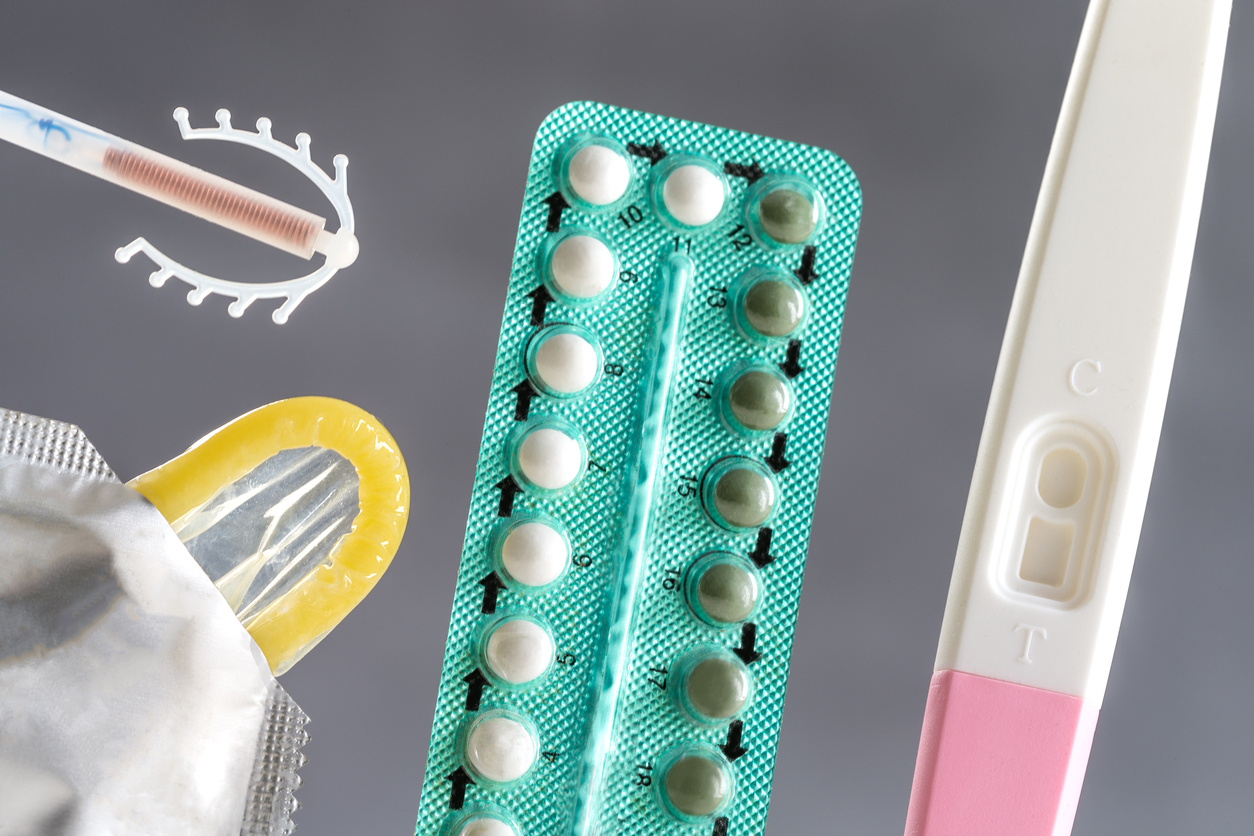Most of the time, taking care of your sexual health comes down to commonsense decisions that need to be made during every sexual encounter. Using protection and contraception (and doing so properly) is essential, but unfortunately there are many misconceptions about which protection protects against what and how contraception really works.
Your PGOMG provider is available to answer your questions about sexual healthcare, and we encourage you to request an appointment if you have concerns.
Sexual Healthcare 101
Protection vs. contraception
The terms “protection” and “contraception” are often used interchangeably, but they are not the same thing. Protection is used to prevent the spread of STDs as well as pregnancy, whereas contraception is typically used only for the prevention of pregnancy. So while the birth control pill is a form of contraception that prevents pregnancy, it does not protect against STD transmission. The only form of protection that does that is abstinence or proper use of a condom.
Please note: Even a properly used condom isn’t perfect against STD transmission. For example, the human papillomavirus (HPV) can be spread even with condom use, because a condom doesn’t cover the entire genital area. Protection against HPV is possible with the Gardasil vaccine, which is appropriate for both men and women up to age 26. Most receive the vaccine around ages 16-18. Learn about the HPV vaccine Gardasil.
Using protection every time
A core myth that needs to be cleared up is that as long as some form of protection is used most of the time, there is no need for concern. Though it is true that women are more likely to become pregnant at certain times during their monthly cycles, they can become pregnant at any point during the month. This includes during menses. Protection against STDs and pregnancy (when applicable) needs to be seriously considered during each sexual encounter, including oral and anal sex.
Family planning options at PGOMG
PGOMG offers patients the following forms of contraception:
- The birth control pill
- Emergency contraception, Plan B
- Mirena IUD
- Nexplanon implant
- Sterilization
- Tubal ligation
Again, the above forms of contraception do not protect against STD transmission, only pregnancy, and only when used properly.
Contact PGOMG today if you have questions or concerns about your sexual health.


